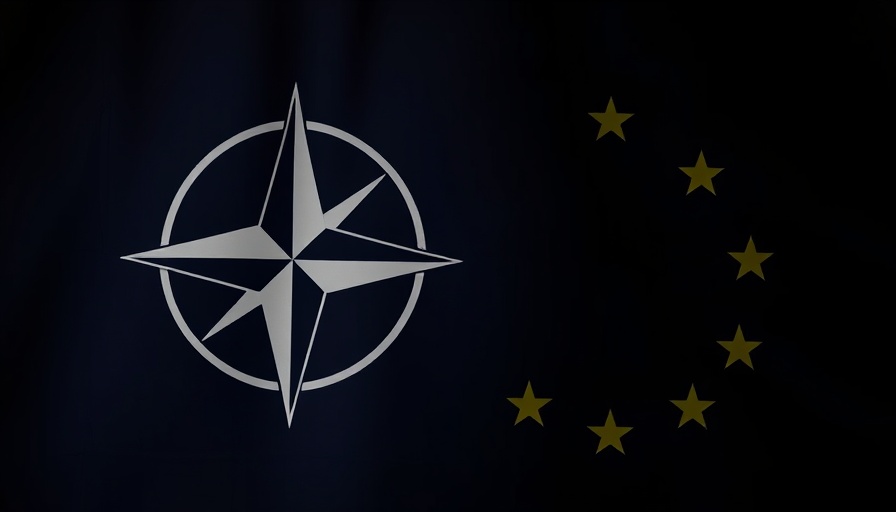
The Strategic Shift: European Military Powers Taking the Lead
As geopolitical tensions rise and global dynamics shift, European military powers have begun to lay ambitious plans that could alter the landscape of NATO. For years, the United States has been seen as the dominant force within the alliance, providing extensive support and resources. However, discussions are now underway among European nations to create a comprehensive 5-10 year plan aimed at replacing U.S. leadership within NATO.
Historic Context: An Alliance in Transition
The transformation of NATO is not an overnight task; it reflects a long-standing evolution in military partnerships among member states. Historically, Europe has relied on the U.S. for military might and strategic decision-making. This unique reliance began post-World War II, wherein the Marshall Plan not only provided economic support but also fortified military alliances. With changing global threats—from cyber warfare to shifting power balances in Asia—the onus is increasingly on Europe to rethink its defense strategies.
Connecting the Dots: Why This Matters to Business Leaders
For Bay Area entrepreneurs and business leaders, the implications of this military shift are vast. A well-defended Europe can lead to a more stable economic environment, fostering opportunities in commercial ventures and investment. Silicon Valley startups focusing on defense technologies might see a rise in demand as European nations advance their military capabilities, potentially leading to increased venture capital funding in innovative defense solutions.
Forecasting Future Trends: The Emerging European Defense Industry
As Europe grapples with the necessity of self-sufficiency in defense, the emergence of a robust European defense industry is likely. This could manifest in increased mergers and acquisitions within tech sectors focusing on military technology. Businesses involved in commercial real estate may also experience shifts, with demand for security and defense infrastructures on the rise. Understanding these evolving trends will be crucial for entrepreneurs aiming to maintain competitiveness in the ever-changing market landscape.
Counterpoint: Challenges Ahead in Military Autonomy
While the aspiration to replace U.S. dominance in NATO reflects ambition and self-reliance, it does not come without challenges. The existing political landscapes in various European nations may hinder unified action, and budget constraints could limit military enhancements. Furthermore, establishing a cohesive strategy that aligns the interests of all NATO members is a complex endeavor, and differing national priorities may slow progress.
Diving Deeper: How This Impacts Economic Forecasts
The integration of military and economic strategies can herald both opportunities and risks for businesses. As the European Union appoints more resources to defense, the dynamics of corporate earnings reports will reflect changes in government spending. Furthermore, potential relocation of military assets or election of pro-defense policies can directly affect employment trends in the technology sector and beyond. Businesses must remain agile and responsive to these forthcoming shifts to leverage their opportunities effectively.
Real Implications for the Local Economy
Ultimately, the decisions made on military fronts will resonate within national economies, especially in the Bay Area. Companies focusing on sustainable business practices in defense sectors could see increased investment and partnerships. Corporations that prioritize corporate social responsibility may also find favor, as government contracts increasingly look at ethical implications, including diversity in the workforce.
This fundamental reimagining of NATO and European defense stands at a critical juncture, offering both challenges and promising new paths for growth. As leaders on both sides of the Atlantic navigate these turbulent waters, remaining informed and prepared will be essential for businesses seeking to thrive in a reshaped geopolitical landscape.
By understanding the evolving military landscape and precipitated economic impacts, entrepreneurs can better position themselves within the broader market.
 Add Row
Add Row  Add
Add 



Write A Comment